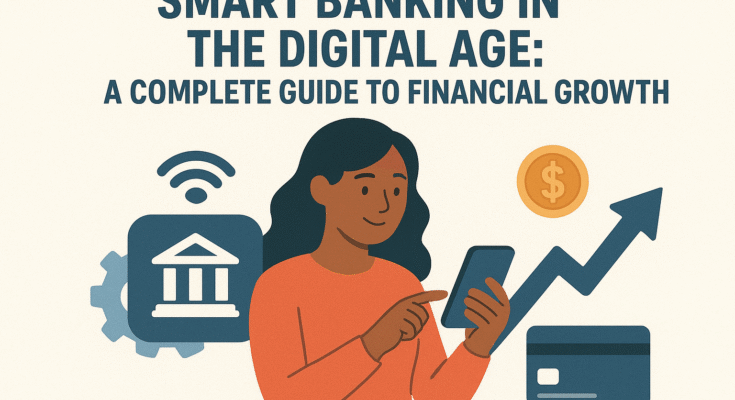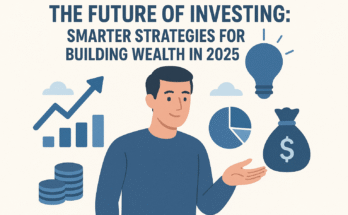Banking is one of the most important systems in modern life. For centuries, banks were viewed simply as places to store money securely and borrow when necessary. But in the digital age, banking has evolved into something far more powerful. It is no longer just about having a savings account or writing checks; it is about how individuals use financial services to grow wealth, build stability, and unlock opportunities. With technology, innovation, and new financial tools, banking today can become a partner in financial success rather than just a service provider.
In this comprehensive guide, we will explore how banking has changed, how to make the most of traditional and modern banking services, and how to use banks strategically to create a stronger financial future.
The Transformation of Banking
If we look back just a few decades, banking was far more limited. People visited branches, stood in long lines, and depended on paper records to manage finances. Transactions could take days, and access to funds outside business hours was difficult. Slowly, technology changed everything. ATMs made cash accessible, credit cards introduced new convenience, and online banking in the 2000s opened the door to a more efficient way of handling money.
Now, banking is mobile, instant, and global. With a smartphone, anyone can send money across borders, invest in markets, or apply for a loan in minutes. What was once a slow and formal process has become fast, personalized, and user-friendly. The competition between traditional banks and fintech companies has further pushed innovation, resulting in services designed to save time, lower fees, and increase returns.
This shift is more than just technological. It has changed the role of banks in people’s lives. Instead of passively holding funds, banks are now tools that can actively help customers save smarter, spend wisely, and build long-term financial strength.
The Role of Banking in Financial Growth
For individuals who want financial independence, banking is the foundation. At its core, a bank account is more than a storage place for money—it is the gateway to saving, borrowing, investing, and protecting assets. A well-structured banking strategy can help a person grow their savings through interest-bearing accounts, build strong credit to access loans, and even link directly to investment opportunities.
Modern banks provide more value than ever before. They offer tools to track spending habits, set savings goals, automate bill payments, and alert customers about unusual activity. These services not only simplify daily life but also help people avoid mistakes that could derail financial progress. By using these features strategically, customers can build habits that lead to long-term security and growth.
Making the Most of Bank Accounts
Not all accounts serve the same purpose. A checking account is essential for daily transactions, but it should not be the only account a person relies on. Savings accounts are still a safe place for emergency funds, though modern versions often offer much higher interest rates than traditional ones. Money market accounts provide a balance between accessibility and better returns, while certificates of deposit are useful for locking money away at higher rates for a fixed term.
Those who run a business or freelance professionally also benefit from dedicated business accounts. Keeping business and personal finances separate not only simplifies taxes but also builds credibility when applying for financing. The right combination of accounts ensures that money is accessible when needed, growing when it can, and organized to meet personal or professional goals.
Credit and Borrowing as Financial Tools
One of the most important aspects of banking is access to credit. Used irresponsibly, it can lead to debt traps, but when managed strategically, it can be one of the strongest tools for wealth-building. Credit cards are the simplest form of this. They offer convenience and rewards while helping to build a credit score, which in turn determines eligibility for larger loans. Paying balances in full every month avoids high interest charges while keeping the benefits.
Loans take this concept further. Personal loans can be used for consolidating debt, funding education, or covering major expenses. Mortgages make home ownership possible, turning monthly rent payments into equity over time. Business loans open doors for entrepreneurs to expand or invest in growth opportunities. Even student loans, while often debated, remain an entry point into higher earning potential when used wisely.
The key to borrowing is understanding repayment capacity and aligning loans with long-term goals. Borrowing for depreciating assets or unnecessary expenses often leads to problems, while borrowing for investments that generate income or increase value can accelerate financial growth.
Digital Banking and the Fintech Revolution
Perhaps the biggest transformation in modern banking is digitalization. Traditional banks have embraced mobile apps, but fintech companies have pushed innovation even further. Today, almost every banking service is available online: opening accounts, depositing checks, applying for loans, transferring money, or investing—all without visiting a branch.
Online-only banks have gained popularity by offering lower fees and higher interest rates. Mobile wallets and peer-to-peer payment platforms have eliminated the need for physical cash in many cases. Automated savings tools now round up daily purchases and invest the difference, making wealth-building effortless. Robo-advisors provide portfolio management at a fraction of the cost of traditional advisors.
This digital-first era has made banking faster and more convenient, but also more competitive. Customers can now choose from a wide range of banks and fintech apps, meaning institutions must provide better services, rewards, and experiences to retain users. For individuals, this competition is beneficial—more choices and better deals.
Security and Trust in Banking
With convenience comes risk. As banking moves online, protecting money and personal data has become a top priority. Fraud attempts, phishing scams, and identity theft are real concerns, but modern banks use advanced security to counter these threats. Multi-factor authentication, biometric logins, and AI-driven fraud detection now form the backbone of secure banking.
Still, individuals play an important role in security. Using strong passwords, monitoring accounts regularly, and being cautious about sharing information remain essential habits. Security is no longer just the responsibility of banks; it is a partnership between institutions and customers. Trust is the foundation of banking, and maintaining it requires constant vigilance in the digital age.
Building a Smart Banking Strategy
Simply having a bank account is not enough to ensure financial growth. The real power lies in how banking tools are used strategically. One of the best habits is automating finances. Automatic transfers to savings or investment accounts ensure consistency. Setting up automatic bill payments prevents late fees and protects credit scores. Linking accounts to budgeting apps provides insights into spending habits, helping identify areas where money can be saved.
Another part of a smart strategy is using rewards and benefits effectively. Many credit cards and accounts offer cashback, travel rewards, or interest bonuses. Choosing accounts that align with lifestyle and spending patterns can generate meaningful returns over time. At the same time, minimizing fees is equally important. Digital banks often eliminate maintenance charges or offer free international transfers, making them more cost-effective than traditional banks.
A well-rounded banking strategy also includes reviewing and adjusting regularly. Just as investments require rebalancing, banking needs evolve. A student’s needs differ from a working professional’s, and a growing family’s priorities differ from those of a retiree. Staying flexible and adapting banking choices ensures financial services always align with current goals.
The Future of Banking
Looking ahead, banking will continue to evolve rapidly. Artificial intelligence is already shaping personalized financial recommendations, while blockchain promises faster, more transparent transactions. Biometric verification may replace passwords entirely, making access more secure and seamless. The line between banking, investing, and payments will blur further as integrated platforms offer all-in-one solutions.
One of the most exciting prospects is the global reach of digital banking. As cashless systems expand, individuals will no longer be limited by geography. Money will move across borders instantly, opening new opportunities for international trade, investment, and collaboration.
However, with opportunity comes responsibility. The future of banking will demand even greater awareness from individuals. Staying informed, using technology wisely, and maintaining discipline will determine who thrives in this new financial landscape.
Final Thoughts
Banking is no longer a passive system that simply holds money. It is a dynamic, evolving tool that, when used strategically, can create opportunities, strengthen security, and accelerate financial growth. The digital age has made services faster, cheaper, and more accessible, but it has also raised the importance of strategy, awareness, and responsibility.
The smartest way to approach modern banking is to treat it as a partner in your financial journey. From choosing the right accounts to managing credit wisely, from leveraging digital tools to staying vigilant about security, every decision builds toward long-term success. Financial independence is not just about income or savings; it is about using every available resource to its fullest potential.
With modern banking, the tools are already in place. What matters most is how they are used. Those who approach banking thoughtfully, with a focus on growth, security, and adaptability, will be best prepared to thrive in the financial future.


